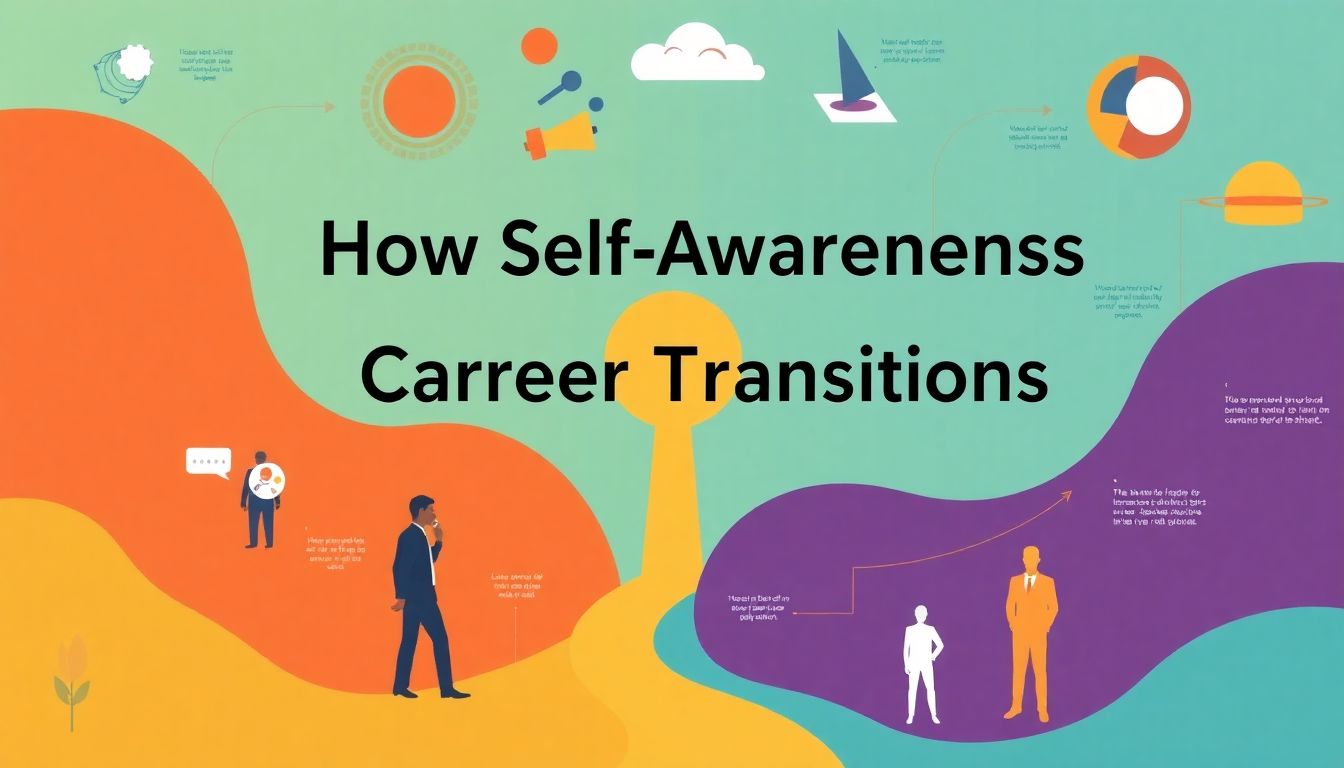Changing careers can be one of the most exciting—and overwhelming—moves in your professional life. Whether you’re shifting industries, taking on a new role, or starting from scratch, the uncertainty and possibility can feel both empowering and paralyzing.
In these moments of transition, self-awareness becomes more important than ever. It serves as your internal compass, helping you make decisions with clarity, confidence, and alignment. Instead of leaping blindly or hesitating out of fear, you move forward with a deeper understanding of who you are and what you need next.
Here’s how self-awareness can support you through a career transition—and help you thrive in the process.
Clarifying the Why Behind the Change
Every career change starts with a reason. But without self-awareness, that reason can get muddled by frustration, fear, or external pressure. You might feel unhappy in your current job, but if you don’t understand why, you risk jumping into another situation that repeats the same problems.
Self-awareness helps you pause and ask:
- What’s missing from my current role?
- What values are not being honored?
- What kind of work makes me feel alive?
By reflecting honestly on your motivations, you create a clearer picture of what kind of change you actually need. That clarity prevents you from making reactive or rushed decisions.
Identifying What You Want to Carry Forward
Career transitions aren’t just about leaving something behind—they’re about deciding what you want to take with you. Self-awareness allows you to recognize the strengths, skills, and experiences that still serve you, even if you’re switching paths.
Ask yourself:
- What am I proud of in my current role?
- What do I want to do more of in my next chapter?
- What parts of my professional identity do I want to preserve?
This perspective shift turns a transition from an ending into an evolution.
Spotting Limiting Beliefs
Transitions often bring up fear, doubt, and imposter syndrome. Thoughts like “I’m too old to change careers” or “I’m not qualified enough” can quietly sabotage your confidence. Self-awareness helps you identify these beliefs and separate fact from fear.
Instead of letting negative thoughts run the show, you learn to pause and ask:
- Is this belief true—or is it a story I’ve internalized?
- What evidence do I have that I can grow in a new direction?
- What would I say to a friend in my shoes?
This kind of mental awareness builds resilience and empowers you to take action despite discomfort.
Setting Goals That Reflect Your Values
It’s easy to set goals that look impressive. But during a career transition, your goals need to feel right to you—not just to your resume. Self-awareness brings your core values to the surface, allowing you to set goals that are meaningful, sustainable, and personally aligned.
For example:
- If you value freedom, your goal might be to find a flexible or remote role.
- If you value creativity, you might seek projects or industries that allow for expression and innovation.
- If you value growth, you may prioritize learning and mentorship opportunities.
When your goals reflect your internal truth, you stay motivated even when the path gets challenging.
Making Confident, Aligned Decisions
Career transitions involve a series of choices—what roles to explore, what offers to accept, what skills to develop. Self-awareness helps you evaluate each option not just by salary or title, but by fit.
Ask:
- Does this opportunity align with my vision for my life?
- Will it stretch me in the ways I want to grow?
- Does it support my long-term goals—or distract from them?
With this level of awareness, you stop chasing approval and start building a career that feels authentic.
Communicating Your Story With Clarity
During interviews, networking, or pitching yourself, how you tell your story matters. Self-awareness helps you own your journey—both the highlights and the pivots—with confidence and coherence.
You can speak to:
- Why you’re making a shift
- What you’ve learned from your past experience
- How your strengths transfer to this new direction
Instead of sounding unsure or apologetic, you come across as intentional and self-directed—qualities every employer values.
Adapting to Change With Resilience
Change is uncomfortable. There will be setbacks, uncertainty, and moments of doubt. Self-awareness gives you tools to manage these feelings instead of being overwhelmed by them.
You learn to:
- Recognize emotional patterns
- Pause instead of react
- Give yourself grace during the learning curve
Transitions are not about being perfect. They’re about staying present, staying curious, and continuing to grow—even when things feel messy.
Redefining Success on Your Terms
One of the most powerful parts of a career transition is the opportunity to redefine what success means to you. Self-awareness helps you update your definition based on who you are now—not who you were five years ago.
Maybe success used to mean climbing the ladder. Now, it means doing work that lights you up. Or having time for your family. Or building something of your own.
Whatever it is, your awareness of it gives your transition purpose.
You’re Not Starting Over—You’re Moving Forward
It might feel like you’re beginning again—but you’re not. You’re building on everything you’ve learned, refining your direction, and becoming more of who you truly are.
Self-awareness turns a career transition into more than a job change—it becomes a conscious evolution. A chance to align your work with your values, your energy, and your future.
You don’t have to have it all figured out. But the more you understand yourself, the more confident and grounded you’ll be as you take the next step.
